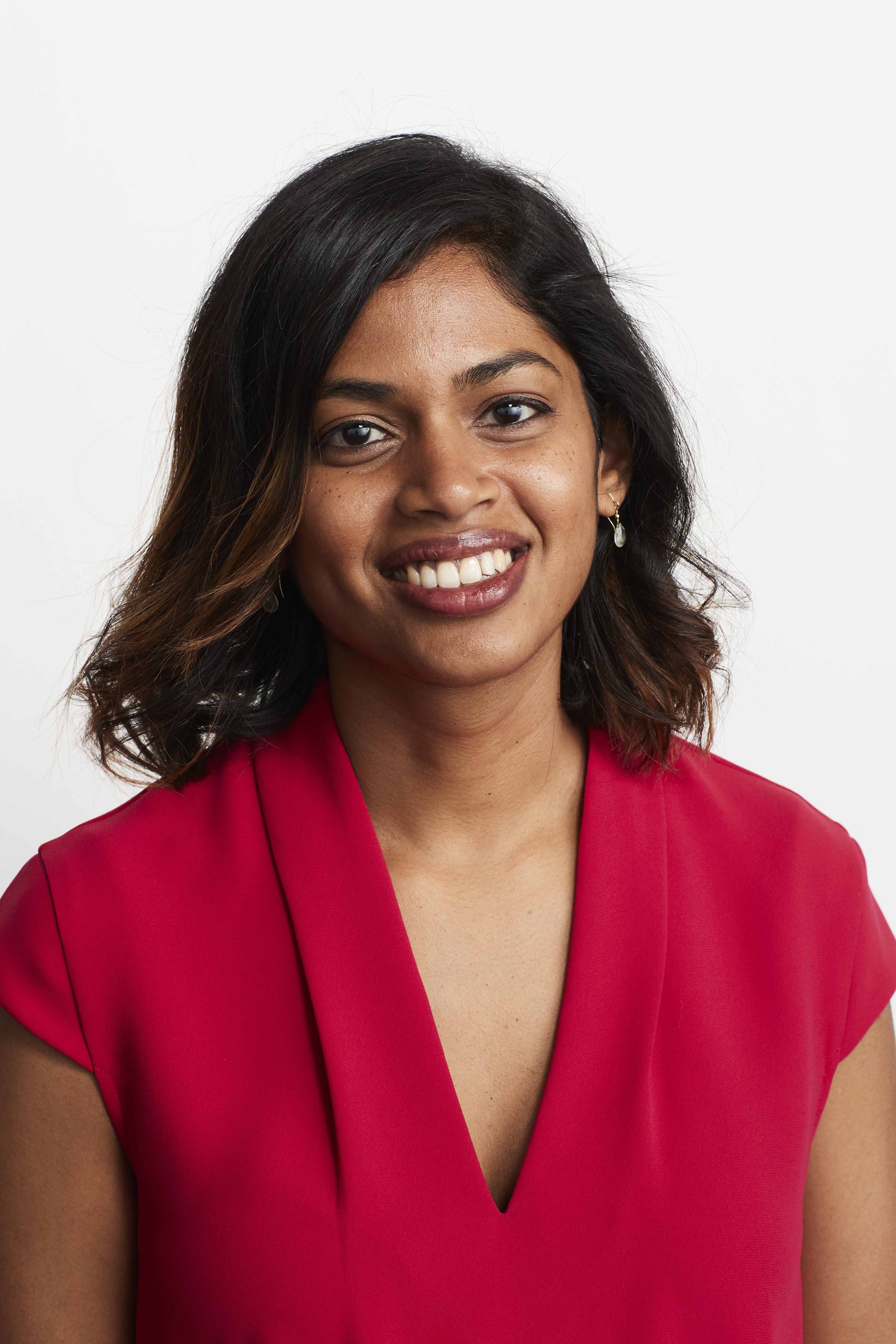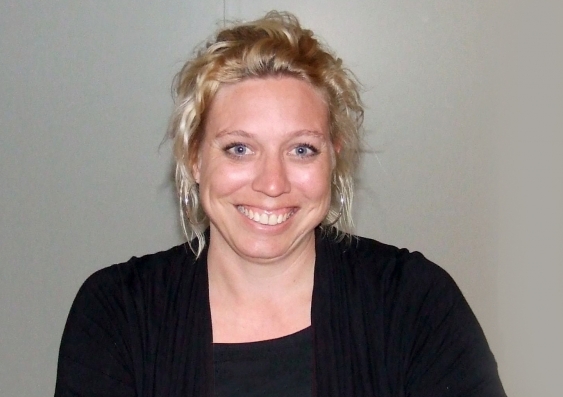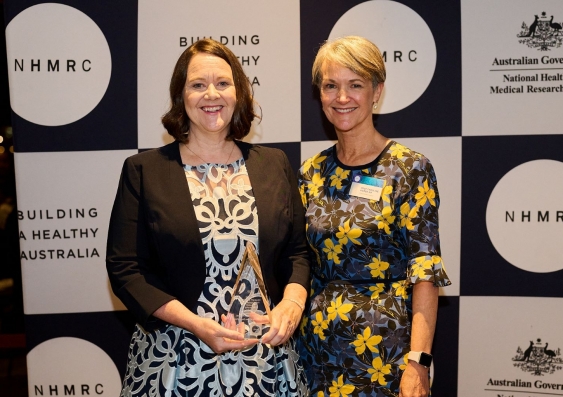UNSW picks up two wins at prestigious research awards
2025-03-28T10:00:00+11:00

Associate Professor Nadeem Kaakoush was recognised for his dedication to mentoring those involved in the NHMRC’s peer review process.
Photo: Anna Kucera.
A health program which improves the wellbeing of Aboriginal and Torres Strait Islander peoples has been recognised by the National Health and Medical Research Council.
UNSW Sydney Scientia Associate Professor Nadeem Kaakoush and the George Institute’s Guunu-maana (Heal) Aboriginal and Torres Strait Islander Health Program have been recognised at the NHMRC’s annual awards night in Canberra.
A/Prof. Kaakoush received the Peer Review Excellence Award while the Guunu-maana team picked up the Research Quality Award on Wednesday.
The Guunu-maana program is made up of a team of researchers, students and project staff at The George Institute who are committed to First Nations-led and informed research. Guunu-maana’s research has had a role in influencing Australian Indigenous health policy, including National Prevention Strategies and Closing the Gap, and contributed to global standards through international discussions such as the first Australasian Injury Prevention Conference focused on Indigenous voices.
Meanwhile, A/Prof. Kaakoush was recognised for his dedication to mentoring those involved in the NHMRC’s peer review process which determines grants funding. It’s the first time the NHMRC has honoured academics involved in this process through its prestigious Biennial Awards scheme.
Professor Bronwyn Fox, Deputy Vice-Chancellor Research & Enterprise at UNSW, congratulated this year’s recipients.
“Both Associate Professor Kaakoush and the Guunu-maana team are doing important work in uplifting the quality of Australian health and medical research by ensuring it is conducted with rigour and integrity, and prioritises the well-being of the individuals involved,” Prof. Fox said.
“The NHMRC creates pathways to a healthier society through its research funding and I am pleased to see our academics being honoured for driving research which reflects UNSW’s commitment to advancing health and medical research.”
Media enquiries
For enquiries about this story and interview requests, please contact Ben Knight, External Communications Officer, UNSW Sydney.
Phone: (02) 9065 4915
Email: b.knight@unsw.edu.au
Addressing historical research imbalances
The Guunu-maana (Heal) Program is an Aboriginal and Torres Strait Islander-led initiative working with communities. The program examines social and cultural determinants of wellness, health care systems, and community priorities, emphasising strong Indigenous leadership, strengths-based approaches, and capacity building for both First Nations and non-Indigenous researchers.
“We are incredibly proud to receive the NHRMC Research Quality Award, which is testament to our commitment to cultural integrity and community-led research,” said Associate Professor Julieann Coombes, Acting Co-Head of the Guunu-maana (Heal) Program at The George Institute for Global Health and Conjoint Associate Professor at UNSW Medicine & Health.
“Our team is dedicated, experienced and dynamic, and we’re grateful that their work has been recognised as having an impact not only on specific health issues but also in providing positive examples of how research can be conducted culturally and effectively in partnership with communities to improve health outcomes of Aboriginal and Torres Strait Islander people and communities.”
Collaborations such as Safe Pathways, Community Coordinated Burn Care, Building Cultural Safety and Capability, Food and Water for Life, the Housing, Home and Health study and Dance2Kinnect are among a growing body of evidence from Guunu-maana demonstrating the importance of culturally informed care in bridging health disparities.
“Our collaborative approach is based on listening and ensures the research is not only methodologically sound but also culturally safe, deeply respectful of Aboriginal and Torres Strait Islander knowledge, values, and lived experience, and able to be translated globally to contribute to improving the health of other First Nations communities,” A/Prof. Coombes said.
Driving best practice in research funding process
A/Prof. Kaakoush was among the winners of the inaugural Peer Review Excellence Awards, which is nominated and voted on internally by NHMRC staff.
The NHMRC provides significant grant funding, with a transparent peer-review process determining how funds are allocated.
A/Prof. Kaakoush, whose own research includes studying gut microbiomes, served on an NHMRC Ideas grant review panel in 2019, was an assessor in 2020, 2021 and 2022, and helped as a Peer Review Mentor in the last two years. He also served as an assessor for NHMRC Investigator grants in 2024.
“The award recognises my contribution to the funding system, particularly as a mentor for the Ideas scheme,” he said.
“When the Ideas grants were first introduced, the NHMRC wanted to limit the reliance on researchers' profiles and prior data and make sure that it's all about the idea. So, if you've got a really good idea and you've got the capability to pull it off, you don't need prior data and you don't need to have a big profile,” A/Prof. Kaakoush said.
“As a peer review mentor, we were really there to emphasise the importance of a great idea getting more support than it previously might have”.
A/Prof. Kaakoush said he was honoured to be recognised by the NHMRC for his work there.
“What has been rewarding is that my colleagues have approached me to help them with their grants and help them with the peer review process and I hope that has helped them secure the funding they need,” he said.






